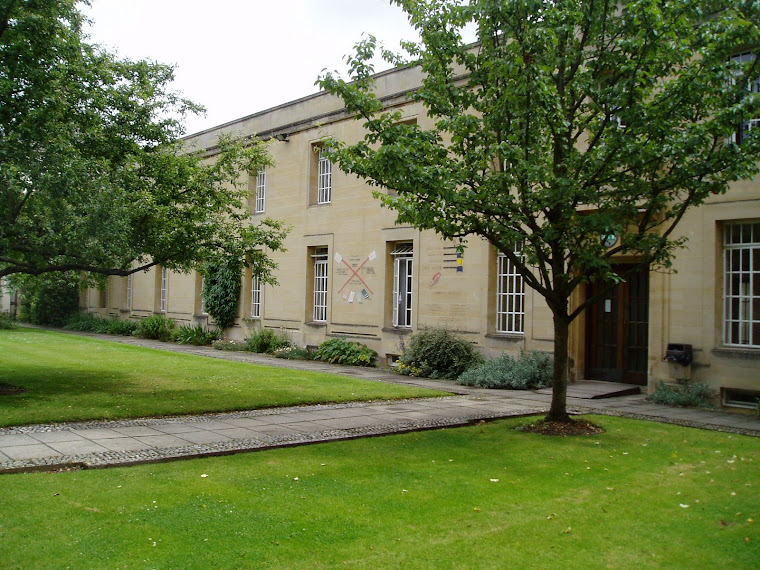Friday, 28 February 2014
Wednesday, 26 February 2014
More about John Bunyan: a Baptist hero
It is high time that I wrote more about John Bunyan, the great Baptist preacher and writer. (Please my post of Tuesday 4 September 2012.)
John Bunyan died before he reached 60 years of age, was a tinker, soldier and self educated theologian. He wrote many books, some still being published and read today. In fact I obtained the complete works of John Bunyan via Kindle, which cost me just the time to download it. I have loved reading Pilgrim's Progress, Grace Abounding, and his book on prayer, which were all available in paperback and probably still are in print. His clear, concise Anglo Saxon English is a joy to read, and he does tell such a good story.
Not only did he write quality books about the Christian life and experience of God from a Puritan perspective, but he preached by all accounts fervently and passionately. He was not a strict Baptist or a particular Baptist; John was a general Baptist who shared the Lord's table with a wider fraternity of believers than some of his Baptist colleagues. Of course we know that this ministry of proclaiming the Gospel and the whole counsel of God caused him suffering and grief. John Bunyan languished in Bedford gaol for unauthorized preaching, but continued to write from his cell.
I particularly like what John Owen, the Puritan divine and highly regarded academic, said to King Charles II, the decadent Stuart monarch:
John Bunyan died before he reached 60 years of age, was a tinker, soldier and self educated theologian. He wrote many books, some still being published and read today. In fact I obtained the complete works of John Bunyan via Kindle, which cost me just the time to download it. I have loved reading Pilgrim's Progress, Grace Abounding, and his book on prayer, which were all available in paperback and probably still are in print. His clear, concise Anglo Saxon English is a joy to read, and he does tell such a good story.
Not only did he write quality books about the Christian life and experience of God from a Puritan perspective, but he preached by all accounts fervently and passionately. He was not a strict Baptist or a particular Baptist; John was a general Baptist who shared the Lord's table with a wider fraternity of believers than some of his Baptist colleagues. Of course we know that this ministry of proclaiming the Gospel and the whole counsel of God caused him suffering and grief. John Bunyan languished in Bedford gaol for unauthorized preaching, but continued to write from his cell.
I particularly like what John Owen, the Puritan divine and highly regarded academic, said to King Charles II, the decadent Stuart monarch:
May it please your Majesty if I could possess the tinker's abilities to grip men's hearts, I would gladly give up in exchange all my learning.Wow!
Tuesday, 11 February 2014
Candlesticks without light and candles
In some places church buildings have been converted in homes, storage facilities, community centres, antique shops and other retail outlets. While this is often a sad indication of a decline in faith and the desire to worship God, in some cases it is a sad indictment of a loss of vision and power by a Christian fellowship.
Where there is no vision the people perish.
Ichabod, the glory of the Lord has departed.
The candlestick or lampstand has been removed. The witness of the Christian fellowship has been so weak that God has left the building. The weak and dying body has lost its reproductive power, and God has not granted them offspring, growth and vitality. The testimony to the living reality of the Lord no longer shines brightly, but it has become dim and dead. The candlestick has no candle. No flame shines or warms those nearby. The lampstand is no longer fulfilling its purpose. It is no longer fit for purpose when it is without the means to bring light. Lights have gone out, sometimes for good.
Let us look at the first chapters of the Book of Revelation, the Apocalypse. The Risen Christ warned the Ephesian church:
Remember therefore from where you have fallen; repent and do the first works, or else I will come to you quickly and remove your candlestick/lampstand from its place, unless you repent.
In some places they are still polishing the candlesticks. They look very attractive, but they give no light.
They are antiques. They have value, but they are no longer bringing light in the darkness.
Some churches have manifestly lost their reproductive powers. They are both sterile and impotent. God grants them no children. God has literally left their buildings. Some churches are in ruins, left to others, and left to decay.
If the Lord is not in the building then the owners are working in vain.
Where the Lord is at work there is life, spiritual birth and growth. We reap what we sow, but God gives the growth. Some churches have no harvest because they did not diligently sow good seed and work hard enough at bringing the harvest in.
In some places the soil is hard and the going tough. But God wishes us to bear much fruit and to see labourers thrust out into the harvest fields of the world.
Where there is no vision the people perish.
Ichabod, the glory of the Lord has departed.
The candlestick or lampstand has been removed. The witness of the Christian fellowship has been so weak that God has left the building. The weak and dying body has lost its reproductive power, and God has not granted them offspring, growth and vitality. The testimony to the living reality of the Lord no longer shines brightly, but it has become dim and dead. The candlestick has no candle. No flame shines or warms those nearby. The lampstand is no longer fulfilling its purpose. It is no longer fit for purpose when it is without the means to bring light. Lights have gone out, sometimes for good.
Let us look at the first chapters of the Book of Revelation, the Apocalypse. The Risen Christ warned the Ephesian church:
Remember therefore from where you have fallen; repent and do the first works, or else I will come to you quickly and remove your candlestick/lampstand from its place, unless you repent.
In some places they are still polishing the candlesticks. They look very attractive, but they give no light.
They are antiques. They have value, but they are no longer bringing light in the darkness.
Some churches have manifestly lost their reproductive powers. They are both sterile and impotent. God grants them no children. God has literally left their buildings. Some churches are in ruins, left to others, and left to decay.
If the Lord is not in the building then the owners are working in vain.
Where the Lord is at work there is life, spiritual birth and growth. We reap what we sow, but God gives the growth. Some churches have no harvest because they did not diligently sow good seed and work hard enough at bringing the harvest in.
In some places the soil is hard and the going tough. But God wishes us to bear much fruit and to see labourers thrust out into the harvest fields of the world.
Wednesday, 5 February 2014
Another Railway Man (continued)
So the questions come to mind: Can we forgive and yet not forget? Where does justice and punishment of the offender come into the situation when we have been wounded, hurt or harmed by the cruelty and sinfulness of others? How does total forgiveness operate in cases of deep suffering and severe injury, when the wounds still hurt and remain with the victim? Should a victim who wants to forgive their perpetrator pursue punishment and restitution?
Eric Lomax drew on his Christian faith and heritage to find forgiveness. In his book he writes affectionately of J. Sidlow Baxter, whom he had heard preaching in Scotland, often from Charlotte Chapel in Edinburgh.
Forgiveness is at the heart of the Gospel message. Christ came into the world to save sinners and to bring them forgiveness of sins. He taught his disciples to ask for forgiveness for their sins, as they forgave those who trespassed against them. What does this mean for the Christian believer in today's world? Is total forgiveness possible?
As a child I was forbidden to buy any toys or goods made in Japan. Some cheered when Hiroshima and Nagasaki were nuked. But we now know how the innocent suffered as a result of the bomb and the fallout.
These atomic bombs were so destructive, having dreadful consequences. Those who wanted retribution and revenge rejoiced in these events.
Some argued that the Japanese received their just desserts, and the atomic bombing shortened the war and saved lives, while others condemned the use of such horrendous weapons of mass destruction. They shouted, "No more Hiroshimas." The threat of mass destruction as a result of sophisticated weapons is still with us.
Hugh Dibbens, formerly Vicar of Hornchurch, was once a missionary in Japan. Canon Dibbens told me that through Christ a man came to find reconciliation and forgiveness, on his part, when he met, years later, at a service of Holy Communion in Japan, the Japanese soldier who had once tortured and tormented him (during the Second World War). (I believe this victim of ill treatment was a clergyman and saw his old Japanese adversary in the congregation coming to receive the sacrament. I will contact Hugh to find out more.)
RT Kendall wrote Total Forgiveness after having received some harsh letters, comments and abuse from disaffected church members and colleagues. He was deeply hurt by words and actions by former members of his congregation and others who pitched in. It was a difficult situation to follow the ministry of Dr. D. Martyn Lloyd-Jones at Westminster Chapel in Buckingham Gate. Poor RT suffered much criticism, and has attracted the ire of certain hard-line Calvinists. Some took exception to his pro-charismatic stance and changes during his ministry at Westminster Chapel. RT came under attack from various sections of the Evangelical community, particularly those in the British Evangelical Council as opposed to those in the Evangelical Alliance. Out of this painful period of ministry RT wrote a Christian classic on forgiveness. RT has consequently helped many Christians to take forgiveness seriously, living without bitterness, resentment and grudges.
To experience total forgiveness, to be able to forgive those who warrant our forgiveness as a result of their actions, works and ways, we need to allow God's grace to help us. By the Holy Spirit we are given the grace to forgive and to move on, having released and relinquished desires for revenge and paying back evil for evil. The Holy Spirit can give us that forgiving spirit that helps our sanctification, drawing us closer to the heart of our Heavenly Father. When we draw near to God we are conscious of our own sin and need for forgiveness. We then are in a position to receive mercy and grace sufficient to overcome our unforgiving hearts. This process of sanctification and receiving help from the throne of grace is ongoing. Laying aside our sins,we then press on, looking to Jesus the author and finisher of our precious faith.
Eric Lomax drew on his Christian faith and heritage to find forgiveness. In his book he writes affectionately of J. Sidlow Baxter, whom he had heard preaching in Scotland, often from Charlotte Chapel in Edinburgh.
Forgiveness is at the heart of the Gospel message. Christ came into the world to save sinners and to bring them forgiveness of sins. He taught his disciples to ask for forgiveness for their sins, as they forgave those who trespassed against them. What does this mean for the Christian believer in today's world? Is total forgiveness possible?
As a child I was forbidden to buy any toys or goods made in Japan. Some cheered when Hiroshima and Nagasaki were nuked. But we now know how the innocent suffered as a result of the bomb and the fallout.
These atomic bombs were so destructive, having dreadful consequences. Those who wanted retribution and revenge rejoiced in these events.
Some argued that the Japanese received their just desserts, and the atomic bombing shortened the war and saved lives, while others condemned the use of such horrendous weapons of mass destruction. They shouted, "No more Hiroshimas." The threat of mass destruction as a result of sophisticated weapons is still with us.
Hugh Dibbens, formerly Vicar of Hornchurch, was once a missionary in Japan. Canon Dibbens told me that through Christ a man came to find reconciliation and forgiveness, on his part, when he met, years later, at a service of Holy Communion in Japan, the Japanese soldier who had once tortured and tormented him (during the Second World War). (I believe this victim of ill treatment was a clergyman and saw his old Japanese adversary in the congregation coming to receive the sacrament. I will contact Hugh to find out more.)
RT Kendall wrote Total Forgiveness after having received some harsh letters, comments and abuse from disaffected church members and colleagues. He was deeply hurt by words and actions by former members of his congregation and others who pitched in. It was a difficult situation to follow the ministry of Dr. D. Martyn Lloyd-Jones at Westminster Chapel in Buckingham Gate. Poor RT suffered much criticism, and has attracted the ire of certain hard-line Calvinists. Some took exception to his pro-charismatic stance and changes during his ministry at Westminster Chapel. RT came under attack from various sections of the Evangelical community, particularly those in the British Evangelical Council as opposed to those in the Evangelical Alliance. Out of this painful period of ministry RT wrote a Christian classic on forgiveness. RT has consequently helped many Christians to take forgiveness seriously, living without bitterness, resentment and grudges.
To experience total forgiveness, to be able to forgive those who warrant our forgiveness as a result of their actions, works and ways, we need to allow God's grace to help us. By the Holy Spirit we are given the grace to forgive and to move on, having released and relinquished desires for revenge and paying back evil for evil. The Holy Spirit can give us that forgiving spirit that helps our sanctification, drawing us closer to the heart of our Heavenly Father. When we draw near to God we are conscious of our own sin and need for forgiveness. We then are in a position to receive mercy and grace sufficient to overcome our unforgiving hearts. This process of sanctification and receiving help from the throne of grace is ongoing. Laying aside our sins,we then press on, looking to Jesus the author and finisher of our precious faith.
Monday, 3 February 2014
Another Railway Man
My uncle, my mother's brother, was captured by the Japanese army when he arrived in Singapore. Richard, a captain in the British army, was put to work on "the railway of death". He believed, having died some years ago, that every sleeper cost a man his life. Death was a daily reality when working on the tracks.
Richard managed to escape from the Japanese soldiers and reached the Dutch East Indies. There he was captured again, after the locals decided to hand him over to the Japanese army.
The treatment of British soldiers by the Japanese has been well documented. In my early teens I read The Knights of Bushido by the late Lord Russell of Liverpool, which had some horrifying photographs and illustrations of Japanese war crimes.
My mother told me yesterday that on one occasion, during my uncle's time in captivity, letters sent to the soldiers were put in a pile for them to see and then ignited when they went to get them. The Japanese made sure that not a single letter was read.
When the war was over my grandfather met his son at the railway station in England and hardly recognized him. What a sorry state Richard was in. My grandfather broke down and wept.
I am currently reading The Railway Man by Eric Lomax, who died in October 2012, having been brutally tortured by the Japanese. The book mentions forgiveness after the bitterness. For my uncle the immense suffering was difficult to forgive and impossible to forget.
RT Kendall wrote Total Forgiveness after having received some harsh letters, comments and abuse from disaffected church members and colleagues. He was deeply hurt by words and actions by former members of his congregation and others who pitched in. It was a difficult situation to follow the ministry of Dr. D. Martyn Lloyd-Jones at Westminster Chapel in Buckingham Gate. Poor RT suffered much criticism, and has attracted the ire of certain hard-line Calvinists. Some took exception to his pro-charismatic stance and changes during his ministry at Westminster Chapel. RT came under attack from various sections of the Evangelical community, particularly those in the British Evangelical Council as opposed to those in the Evangelical Alliance. Out of this painful period of ministry RT wrote a Christian classic on forgiveness. RT has consequently helped many Christians to take forgiveness seriously, living without bitterness, resentment and grudges.
More to follow.
Richard managed to escape from the Japanese soldiers and reached the Dutch East Indies. There he was captured again, after the locals decided to hand him over to the Japanese army.
The treatment of British soldiers by the Japanese has been well documented. In my early teens I read The Knights of Bushido by the late Lord Russell of Liverpool, which had some horrifying photographs and illustrations of Japanese war crimes.
My mother told me yesterday that on one occasion, during my uncle's time in captivity, letters sent to the soldiers were put in a pile for them to see and then ignited when they went to get them. The Japanese made sure that not a single letter was read.
When the war was over my grandfather met his son at the railway station in England and hardly recognized him. What a sorry state Richard was in. My grandfather broke down and wept.
I am currently reading The Railway Man by Eric Lomax, who died in October 2012, having been brutally tortured by the Japanese. The book mentions forgiveness after the bitterness. For my uncle the immense suffering was difficult to forgive and impossible to forget.
RT Kendall wrote Total Forgiveness after having received some harsh letters, comments and abuse from disaffected church members and colleagues. He was deeply hurt by words and actions by former members of his congregation and others who pitched in. It was a difficult situation to follow the ministry of Dr. D. Martyn Lloyd-Jones at Westminster Chapel in Buckingham Gate. Poor RT suffered much criticism, and has attracted the ire of certain hard-line Calvinists. Some took exception to his pro-charismatic stance and changes during his ministry at Westminster Chapel. RT came under attack from various sections of the Evangelical community, particularly those in the British Evangelical Council as opposed to those in the Evangelical Alliance. Out of this painful period of ministry RT wrote a Christian classic on forgiveness. RT has consequently helped many Christians to take forgiveness seriously, living without bitterness, resentment and grudges.
More to follow.
Subscribe to:
Posts (Atom)
Dedham

River Stour











































































































































